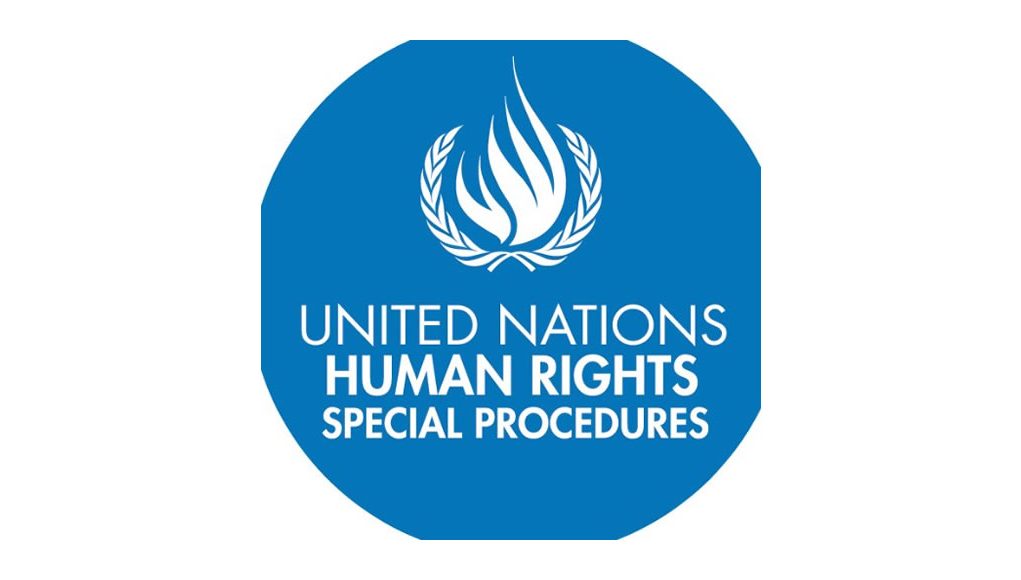BY: Obioma C. Appolos
A high level United Nations Human Rights Special Procedures, has said that the suspension and replacement of the Chief Justice of Nigeria Justice Walter Onnoghen, by President Muhammadu Buhari, is a contravention of international human rights standards on independence of the judiciary and the separation of powers.
In a news release issued on 11 February, 2019, in Geneva Switzerland and made available to our reporter, the UN Special Rapporteur on the independence of judges and lawyers, Diego Garcia-Sayán, strongly warned that the dismissal is incompatible with the independence of the judiciary. While he said he has expressed his concerns to the Nigerian Government and will continue to follow events.
“International human rights standards provide that judges may be dismissed only on serious grounds of misconduct or incompetence. Any decision to suspend or remove a judge from office should be fair and should be taken by an independent authority such as a judicial council or a court.
“The dismissal of judges without following procedures laid down by the law and without effective judicial protection being available to contest the dismissal is incompatible with the independence of the judiciary.” Mr Garcia-Sayan said.
Justice Onnoghen was suspended on 25 January 2019 and replaced by Ibrahim Tanko Mohammad. The President Buhari, told Nigerians that his reason for suspending the CJN was predicated on a court order issued two days earlier by a Code of Conduct Tribunal (CCT) judge. A court established under the Constitution to decide on alleged breaches of the Code of Conduct for Public Officials.
But before the order by the tribunal to suspend the CJN, four other separate Nigerian courts: the Court of Appeal, the National Industrial Court and the two Federal High Courts, had earlier ordered a stay of proceedings in the Tribunal. Moreover, the said order upon which the suspension was based, came on ex-parte while the motion on notice on the same subject was adjourned the day before by the issuing court.
Furthermore, Garcia-Sayán said that; “All State institutions must abide by the decisions of national courts and tribunals. In the case of Chief Justice Onnoghen, four national courts hierarchically superior to the Code of Conduct Tribunal had already ordered a stay of proceedings, and the Tribunal had in a previous case, 8 months earlier, held that it lacked jurisdiction over cases involving judicial officers, which should be processed by the National Judicial Council.”
The news release also said that some of the judges handling the case of the Chief Justice and the defence lawyers have been subjected to serious threats, pressures and interferences, quoting the UN expert as saying; “I am seriously concerned at such allegations, which may constitute, if proven, grave attacks to independence of the judiciary and the free exercise of the legal profession.”
According to the release, García-Sayán went on to say; “One of the senior advocates defending the Chief Justice was arrested on Wednesday by security agencies. Lawyers play an essential role in securing access to justice, and should never suffer, or be threatened with, prosecution or other sanctions for action taken in accordance with recognized professional duties, standards and ethics.”
Mr. Diego García-Sayán (Peru) was appointed UN Special Rapporteur on the independence of judges and lawyers in December 2016. Mr. García-Sayán was formerly a judge of the Inter-American Court of Human Rights for two consecutive terms. During his tenure, he was elected Vice-President of the Court (2008-2009) and President of the Court for two consecutive terms (2009-2013).
He has long-standing experience working on human rights issues in a variety of settings, including for the United Nations and the Organization of American States. The Special Rapporteurs are part of what is known as the Special Procedures of the Human Rights Council. Special Procedures, the largest body of independent experts in the UN Human Rights system, is the general name of the Council’s independent fact-finding and monitoring mechanisms that address either specific country situations or thematic issues in all parts of the world. Special Procedures experts work on a voluntary basis; they are not UN staff and do not receive a salary for their work.






























